|
Books Should Be Free Loyal Books Free Public Domain Audiobooks & eBook Downloads |
|
|
Books Should Be Free Loyal Books Free Public Domain Audiobooks & eBook Downloads |
|
Top Authors |
|---|
|
Book type:
Sort by:
|
By: Charles Kingsley (1819-1875) | |
|---|---|
 The Roman and the Teuton A Series of Lectures delivered before the University of Cambridge
The Roman and the Teuton A Series of Lectures delivered before the University of Cambridge
| |
By: Saint Thomas Aquinas (1225-1274) | |
|---|---|
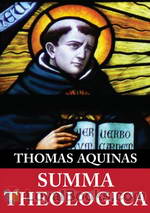 Summa Theologica, Pars Prima
Summa Theologica, Pars Prima
More than nine hundred years after it was first written, this unfinished work of a scholar saint still has the power to move our minds and hearts and set us thinking on the really important questions of life. Summa Theologica or simply the Summa as it is known, was written some time between 1265-74. It is a work that has had a profound and enduring influence on Western thought and literature. Designed to provide answers to Catholic theologians about the teachings of the Church, Thomas Aquinas' book instead goes far beyond its stated purpose... | |
By: Thucydides (Θουκυδίδης) (c. 460-395) | |
|---|---|
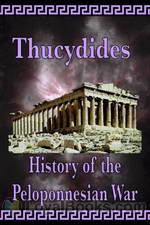 The History of the Peloponnesian War
The History of the Peloponnesian War
The History of the Peloponnesian War is an account of the Peloponnesian War in Ancient Greece, fought between the Peloponnesian League (led by Sparta) and the Delian League (led by Athens) in the 5th Century BC. It was written by Thucydides, an Athenian general who served in the war. It is widely considered a classic and regarded as one of the earliest scholarly works of history. The History is divided into eight books. These book divisions are the work of editors in later antiquity. W. R. Connor [...] describes Thucydides as “an artist who responds to, selects and skillfully arranges his material, and develops its symbolic and emotional potential.” | |
By: Elizabeth Barrett Browning (1806-1861) | |
|---|---|
 Sonnets from the Portugese
Sonnets from the Portugese
Poetry lovers and lovers themselves would certainly know and remember these lines: “How do I love thee? Let me count the ways.....” These and other sublime verses are contained in this collection of tender, mystical, philosophical poems Sonnets from the Portuguese, published originally in 1850. The poet herself was part of one of the most famous literary love-stories of all time – a saga filled with romance, danger and severe opposition from her family. Born into a prominent and extremely wealthy family in Durham, England, she began writing as a child and her father encouraged her talent by getting a collection of poems published when she was only twelve... | |
 A Drama of Exile
A Drama of Exile
In writing her ‘Drama of Exile’, Barrett’s subject was ‘the new and strange experience of the fallen humanity, as it went forth from Paradise into the wilderness’. The bizarre, lyrical scenes that follow powerfully describe the grief and guilt of Eve, the sorrowful pride of Lucifer, and the redeeming power of love. | |
 The Battle of Marathon
The Battle of Marathon
The Battle of Marathon is a rhymed, dramatic, narrative-poem by Elizabeth Barrett Browning. Written in 1820, it retells powerfully The Battle of Marathon: during which the Athenian state defeated the much larger invading force during the first Persian invasion of Greece. When Darius the Great orders his immense army march west to annex additional territories; no-one in the Persian court predicted that some fractious, independent Greek city-states stood any chance against the Persian super-power.... | |
 The Letters of Elizabeth Barrett Browning
The Letters of Elizabeth Barrett Browning
| |
By: Aeschylus (c. 525/524-456/455 BC) | |
|---|---|
 Prometheus Bound (Browning Translation)
Prometheus Bound (Browning Translation)
Whether or not it was actually written by Aeschylus, as is much disputed, "Prometheus Bound" is a powerful statement on behalf of free humanity in the face of what often seem like the impersonal, implacable Forces that rule the Universe. As one of the most compelling rebel manifestos ever composed, it has appealed not only to the expected host of scholars of Greek drama, but also to a fascinatingly free-spirited array of translators, especially since the early 19th century; Percy Bysshe Shelley, Henry David Thoreau, and activist-poet Augusta Webster are among those who have tried their poetic and linguistic powers at rendering it into English... | |
By: Elizabeth Barrett Browning (1806-1861) | |
|---|---|
 'He Giveth His Beloved Sleep'
'He Giveth His Beloved Sleep'
| |
By: Kate Douglas Wiggin (1856-1923) | |
|---|---|
 Rebecca of Sunnybrook Farm
Rebecca of Sunnybrook Farm
Eleven year old Rebecca Rowena Randall travels to Riverboro, Maine, to live with her spinster aunts, Jane and Miranda Sawyer. Her father has been dead for three years and her mother is unable to cope with her brood of seven growing children. Rebecca is being sent to her aunts' farm to try to improve her prospects in life and also ease the family's burden. The aunts had actually wanted her older and more placid sister, Hannah, who is more handy round the house to be sent, but Rebecca's mother sends the dreamy, more imaginative Rebecca instead... | |
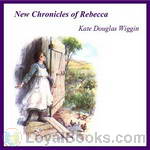 New Chronicles of Rebecca
New Chronicles of Rebecca
This book tells further stories from the period of Rebecca’s sojourn in Riverboro. | |
 The Birds' Christmas Carol
The Birds' Christmas Carol
Born on Christmas Day, little Carol Bird is a gentle soul who touches every life around her. Despite physical illness, Carol is loved by everyone who knows her. This year, she is going to make Christmas extra special for her family and the little Ruggles children who live nearby. (Introduction by Andrea Boltz) | |
 The Diary of a Goose Girl
The Diary of a Goose Girl
The "Goose Girl" is a young and somewhat independent lady who, in fleeing from her lover with whom there had been a "little tiff," became a "paying guest" at poultry farm in a quiet, out-of-the-way Sussex village, in the care of which she participates. From the author of Mother Carey's Chickens, The Bird's Christmas Carol, etc. | |
 The Old Peabody Pew: A Christmas Romance of a Country Church
The Old Peabody Pew: A Christmas Romance of a Country Church
A sweet, old fashioned Christmas romance set in an old New England meeting house. | |
 The Romance of a Christmas Card
The Romance of a Christmas Card
The story of the mission of two Christmas cards written by a minister’s wife. These cards find their way to two straying sheep from the village fold, who hear through the message in the words, and the little scenes on the cards, the compelling voice of home. There was inspiration and good cheer in the cards, and from them came, in one case reformation, in the other romance. | |
By: Heinrich von Kleist (1777-1811) | |
|---|---|
 Michael Kohlhaas (English Translation)
Michael Kohlhaas (English Translation)
Michael Kohlhaas is an 1811 novella by Heinrich von Kleist, based on a 16th-century story of Hans Kohlhase. Both the theme (a fanatical quest for justice) and the style (existentialist detachment posing as a chronicle) are surprisingly modern. They resonated with other writers more than a century after it was written. Kafka devoted one of only two public appearances in his whole life to reading passages from Michael Kohlhaas. Kafka said that he "could not even think of" this work "without being moved to tears and enthusiasm." | |
By: Leon Trotsky (1879-1940) | |
|---|---|
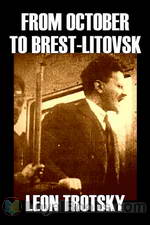 From October to Brest-Litovsk
From October to Brest-Litovsk
This account by Trotsky is of the events in Russia from the October Revolution of 1917 in Petrograd, to his signing of the Brest-Litovsk treaty with Germany on 3rd March 1918 which took Russia out of the First World War. The treaty exacted heavy losses for Russia in terms of annexations of land and financial indemnities to Germany. In this extended essay, Trotsky argues the reasons as to why he decided to sign what appears to be a disastrous agreement for Russia. | |
By: Publius Cornelius Tacitus | |
|---|---|
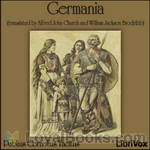 Germania
Germania
The Germania (Latin: De Origine et situ Germanorum, literally The Origin and Situation of the Germans), written by Gaius Cornelius Tacitus around 98, is an ethnographic work on the Germanic tribes outside the Roman Empire. Germania fits squarely within the tradition established by authors from Herodotus to Julius Caesar. Tacitus himself had already written a similar essay on the lands and tribes of Britannia in his Agricola. The Germania begins with a description of the lands, laws, and customs... | |
 The Annals
The Annals
The Annals was Tacitus’ final work, covering the period from the death of Augustus Caesar in the year 14. He wrote at least 16 books, but books 7-10 and parts of books 5, 6, 11 and 16 are missing. Book 6 ends with the death of Tiberius and books 7-12 presumably covered the reigns of Caligula and Claudius. The remaining books cover the reign of Nero, perhaps until his death in June 68 or until the end of that year, to connect with the Histories. The second half of book 16 is missing, ending with the events of the year 66... | |
 Agricola
Agricola
The Agricola (Latin: De vita et moribus Iulii Agricolae, lit. On the life and character of Julius Agricola) is a book by the Roman historian Tacitus, written c 98, which recounts the life of his father-in-law Gnaeus Julius Agricola, an eminent Roman general. It also covers, briefly, the geography and ethnography of ancient Britain. As in the Germania, Tacitus favorably contrasts the liberty of the native Britons to the corruption and tyranny of the Empire; the book also contains eloquent and vicious polemics against the rapacity and greed of Rome. This translation by Alfred John Church and William Jackson Brodribb, was first published in 1877. | |
 Tacitus' Histories
Tacitus' Histories
The Histories was written between 100 and 110 A.D. It covered the Year of Four Emperors following the downfall of Nero, the rise of Vespasian, and the rule of the Flavian Dynasty up to the death of Domitian. Only the first four books and 26 chapters of the fifth book have survived, covering the year 69 and the first part of 70. The work is believed to have continued up to the death of Domitian on September 18, 96. As a prelude to the account of Titus’s suppression of the Great Jewish Revolt, Book 5 features a short ethnographic survey of the ancient Jews as seen from the Roman point of view. This translation was first published in 1912 | |
 A Dialogue Concerning Oratory, or the Causes of Corrupt Eloquence
A Dialogue Concerning Oratory, or the Causes of Corrupt Eloquence
The scene of the Dialogus de Oratoribus, as this work is commonly known, is laid in the sixth year of Vespasian, 75 a.D. The commentators are much divided in their opinions about the real author; his work they all agree is a masterpiece in the kind; written with taste and judgement; entertaining, profound, and elegant. It is normally considered to have been written by Tacitus, even though some ascribe it to Quintilian. The main subject is the decadence of oratory, for which the cause is said to be the decline of the education, both in the family and in the school, of the future orator. In a certain way, it can be considered a miniature art of rhetoric. | |
By: Alexis de Tocqueville (1805-1859) | |
|---|---|
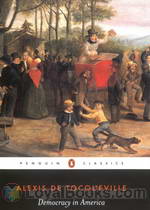 Democracy in America
Democracy in America
Arguably, one of the most influential and insightful pieces of work concerned with American political life, Democracy in America directs itself towards American politics and society, and is considered to be one the best books written on the subject. Published in 2 volumes, in 1835 and 1840, Tocqueville records his findings after studying the thriving nation in his nine month exploratory journey. The young French aristocrat first came to America on an official assignment to study the American penal system, but instead used this as a pretext to study American society... | |
 American Institutions and Their Influence
American Institutions and Their Influence
| |
 Correspondence & Conversations of Alexis de Tocqueville with Nassau William Senior from 1834 to 1859, Volume 2
Correspondence & Conversations of Alexis de Tocqueville with Nassau William Senior from 1834 to 1859, Volume 2
| |
By: Unknown | |
|---|---|
 The Bible, Weymouth New Testament (WNT) - Matthew
The Bible, Weymouth New Testament (WNT) - Matthew
The Weymouth New Testament ("WNT"), otherwise known as The New Testament in Modern Speech or The Modern Speech New Testament, is a translation into "modern" English as used in the nineteenth century from the text of The Resultant Greek Testament by Richard Francis Weymouth from the Greek idioms used in it. It was later edited and partly revised by Reverend Ernest Hampden-Cook in London, England. Publishers: Baker and Taylor Company (New York) in 1903 and James Clarke & Co (London) in 1903.Richard Francis Weymouth's popular translation of the New Testament into English was first published in 1903 and has been in print through numerous editions ever since with millions of copies sold... | |
By: A. A. Milne (1882-1956) | |
|---|---|
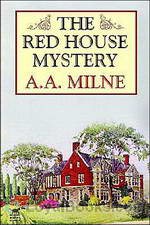 The Red House Mystery
The Red House Mystery
The Red House Mystery is a novel by A. A. Milne about the mysterious death of Robert Ablett inside the house of his brother, Mark Ablett while there was a party taking place. It’s a whodunit novel with a simple story that's skilfully told. Milne is best known for his works about Winnie the Pooh, but before he became famous for telling stories about this teddy bear, he also garnered praise for “The Red House Mystery.” The novel was set during a house party in the mansion home of Mark Ablett known as the “red house... | |
 Once on a Time
Once on a Time
This version of the book is done as a Dramatic Reading with various people speaking each characters part.When the King of Barodia receives a pair of seven-league boots as a birthday present, his habit of flying over the King of Euralia's castle during breakfast provokes a series of incidents which escalate into war. While the King of Euralia is away, his daughter Hyacinth tries to rule in his stead and counter the machiavellian ambitions of the king's favourite, the Countess Belvane. Ostensibly a typical fairytale, it tells the story of the war between the kingdoms of Euralia and Barodia and the political shenanigans which take place in Euralia in the king's absence... | |
By: Mary Elizabeth Braddon (1837-1915) | |
|---|---|
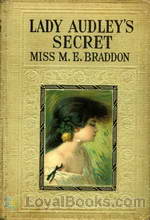 Lady Audley's Secret
Lady Audley's Secret
Inspired by a true life story, Lady Audley's Secret is the story of a woman's overwhelming ambition and passion for social success. When the first book came out in 1862, Victorian readers were shocked and outraged by its portrayal of aspects like bigamy, insanity, yearning for social status and the will to commit murder to achieve one's goals. The novel belongs to a genre that became very popular during that era. Known as “sensation novels” they can probably be equated to today's pulp fiction... | |
 Aurora Floyd
Aurora Floyd
Aurora Floyd, the daughter of a rich banker and an actress, could not have had a better start: back from a finishing school in Paris, she is beautiful, clever and rich. Two men instantly fall in love with her. But when they discover that she have done something very wrong in her past, who will stand by her side? With a set of unforgettable characters, the author delivers to us what she calls "a domestic drama". This book asks some major questions: is it good to love someone even if they lied? Even if they were amoral and behaved very badly? Is it good to forgive everything? Those questions are timeless, and so is this book. | |
By: Herodotus of Halicarnassus (440 BC) | |
|---|---|
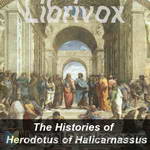 Herodotus' Histories
Herodotus' Histories
The Histories of Herodotus of Halicarnassus is considered the first work of history in Western literature. Written about 440 BC, the Histories tell the story of the war between the Persian Empire and the Greek city-states in the 5th century BC. Herodotus traveled extensively around the ancient world, conducting interviews and collecting stories for his book. The rise of the Persian Empire is chronicled, and the causes for the conflict with Greece. Herodotus treats the conflict as an ideological one, frequently contrasting the absolute power of the Persian king with the democratic government of the Greeks. | |
By: Joshua Slocum (1844-1909) | |
|---|---|
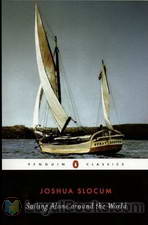 Sailing Alone Around the World
Sailing Alone Around the World
A sailing memoir written by seaman and adventurer Joshua Slocum, who was the first person to sail around the world alone, documents his epic solo circumnavigation. An international best-seller, the book became a great influence and inspiration to travelers from each corner of the globe. Additionally, Slocum is an example that through determination, courage and hard work any dream can easily become a reality. Written in a modern and conversational tone, the autobiographical account begins with Slocum’s description of his hometown of Nova Scotia and its maritime history... | |